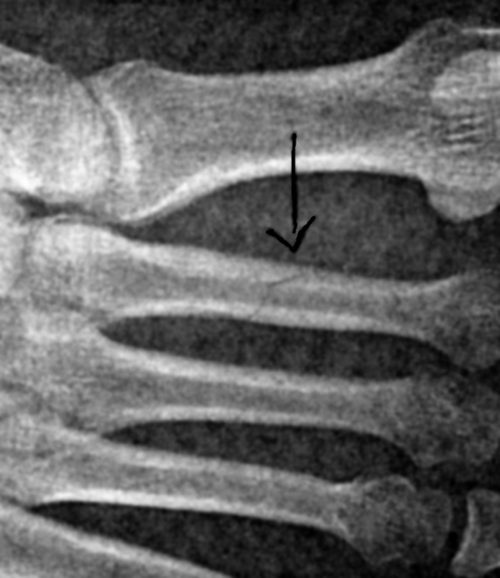***UPDATED to fix Tressie’s twitter handle. Cuz that was embarrassing.***
Men sabotaging women’s birth control is A Thing.
It’s a form of abuse, an act of taking control over her own body away from a woman. Women suffering from domestic violence are often additionally victim to this as well as other forms of abuse, by men trying to keep them from leaving the relationship (which for obvious reasons is much harder when you’re pregnant or have children in the house), or sometimes just because it’s another form of control and DV is all about control. It is obvious therefore that sabotaging women’s birth control and other forms of reproductive coercion need to end, victims of this need to be able to seek justice, and perpetrators need to be made accountable.
Which of course means that now that a Canadian case has made a lot of people notice that this is A Thing, they want to criminalize it, based on the argument that the sexual assault laws in the U.S. would never suffice by themselves to persecute abusers for it*. Sounds sensible: if you think that the criminal justice system works even remotely well, then it makes sense to think that if someone commits an act of violence, they need to be sent throught the CJS for it. But this really does require the assumption that the U.S. legal system is just (or at least “close enough” to just to make it work more often than not)and therefore that criminalization will work as intended.
I’m skeptical. I’m skeptical, because when I read this twitter exchange between Lauren Chief Elk (@ChiefElk) and Brienne of Snarth (@femme_esq), I couldn’t help but acknowledge the truth of many of the points, if not necessarily their immediate applicability to the wider U.S. culture**. I’m skeptical, because I tend to come at these things from a harm-reduction-based perspective, and I’m not convinced that this will actually reduce rather than increase harm. I’m skeptical, because cultural myths play a huge role in the ways laws actually end up being applied.
For example, the Stand Your Ground laws don’t actually allow victims greater leeway in self-defense (see: Marissa Alexander***) but rather allow already privileged people to get away with violence even more. This is because cultural myths are such that black men and women are always seen as the danger, and white men and women always as the defenders of civilization. And how does this work with birth control sabotage? Our cultural myths claim that women are baby-crazy, and men don’t actually want kids; that women are more likely to be ok with an unplanned pregnancy than men (there’s how many movies with that plot? The one where an uncomplicated het-relationship gets derailed by pregnancy that switches the woman into “settling&nesting” mode while giving the guy a midlife crisis?); that women are more invested in committed relationships than men (see: ball-and-chain), and thus more likely to use desperate measures to prevent a breakup; etc. Hell, google “tricking into pregnancy” and see how that works out. As Brienne points out in the twitter dialogue, the cultural narrative is of a woman trapping a man rather than vice versa. Even the Daily Beast article linked at the beginning of this essay acknowledges this with a link to an article discussing NBA orientation for rookie players, in which the following quote appears:
They wanted us to see the dangers out there. They warned us about groupies poking holes in condoms, having hidden cameras and stuff like that. The temptations are hard to turn down, but if you don’t, you are subject to big problems.
And remember, we live in a society in which there are people convinced that women stealing sperm out of discarded condoms is some sort of epidemic (google “spermjacking” if you really want to know more about this; I wouldn’t recommend it tho).
So what I’m saying is this: when you’re operating within an extremely unjust legal system, you have to be exceedingly careful how you use it; in this case, the question is: how likely is it that criminalizing BC sabotage will be effectively used against actual abusers, rather than against women by e.g. dudes not wanting to pay child support?
BC sabotage is going to be a situation of he-said-she-said almost always, and “he said” will be always given more weight than “she said”, especially when other oppressions like race and class also work against the woman. I can imagine this even leading to greater reproductive coercion, if a guy who doesn’t want a kid threatens the pregnant woman to either get an abortion or be accused of spermjacking or some shit like that. I can also imagine that many women won’t report BC sabotage: consider the stigma BC has in this country (Sandra Fluke anyone? And she was a very privileged woman); consider the cultural myths about who sabotages BC; consider the “bitches be lyin'” trope. Basically, all the reasons ever mentioned in #IDidNotReport will figure in here as well, and we might well be increasing the potential for legal harassment of victims of DV, by giving their abusers another tool to subvert for their own needs.
Mind you, harm reduction is not the sole reason to criminalize something. The main other uses of criminalization in justice are punishment, normalization, process, and deterrence.
I reject the idea of punishment as a goal of justice, in general. Punishment of an offender as a goal of criminalization/incarceration (rather than a means towards another goal) relies on the notion that responsibility lies solely and entirely with the offender; it requires belief in a self-causing will, in the notion that an action is entirely and solely caused by the offender’s creation of a desire and opportunity to act as they did. I don’t accept this belief, because it goes against the evidence that shows us that the world outside our heads shapes our desires, priorities, and opportunities. Punishment for the offender and only for the offender (because how to you incarcerate social structures?) is an individualist erasure of the structural causes of violence.
So while accountability for the harm caused by an action is a sensible part of justice, punishment for its own sake is not. Making someone “pay the price” for a crime to society or to the victims has to actually be of value to society or the victims, and locking someone up does not, per-se, produce any value to society/victims. It can only do so as a means to a goal. Which brings us to the other aspects.
Despite the saying “morality cannot be legislated”, a law actually is a normative statement. And the fact that plenty of people can’t tell the difference between legal and moral (nor the difference between illegal and immoral)seems to indicate that normalization happens, if not immediately than into the next generation at least. Basically, if you allow or forbid something and the world doesn’t come crashing down (or significantly inconvenience anyone with social visilibity), people get used to it and start thinking of this as the new normal. So folks saying that it would make a statement that society doesn’t condone reproductive coercion if it were criminalized do have a point. But as a main reason to criminalize it, it seems not enough, given that it would also be a weak normative statement. Not because a law is a weak normative statement per-se, but because laws that go against strongly entrenched cultural myths have their normative function subverted. E.g. rape being illegal does mean the cultural idea is that rape is bad, but it’s entirely abstract; not only do some actual rapes get defined out of the rape category, the culture also creates a lot of exceptions (the most jarring example is prison-rape: people generally don’t deny it’s rape, but they treat it like a joke or a deserved punishment). I suspect the same will happen with these situations: even if we’d achieve a normalization of the belief that reproductive sabotage is a thing and a bad thing, the cultural mythology around it will subvert it so that real instances will be treated as not-it, or as exceptions where it’s somehow ok.
Process means simply giving someone a clear, pre-set way of dealing with something. Now, I don’t think any engagement with the American CJS is easily understandable, simple, etc. but having a set process and a set of legal tools to deal with something is usually preferable to no procedure at all. This is likely the strongest case for criminalization, because it’s useful and helpful to be able to take out restraining orders, have a concrete, codified thing to accuse your abuser of, and have other rules you can lean on when it’s hard to try to think your way out of a situation. But acknowledging this absolutely requires remembering that this will be useful primarily to those with educational and class**** privilege; who don’t make up the majority of DV victims.
Deterrence is/can be an acknowledgement of the way social structures shape choices. To deter means to change the environment in which a choice is made, and introduce a desire (the desire to avoid being held accountable) to hopefully outcompete the desire that would be satisfied by the criminal action. These changes can lead to reductions in the occurrence of a harmful act, and can therefore be actually useful. As such, deterrence is not inherently flawed the way punishment is; but it needs to actually accomplish the environmental and internal changes, or else it’s bullshit. A law as deterrent tends to only work if the likelihood of getting caught & convicted is high, or at least thought of as high. Laws that have low rates of perpetrators getting caught and getting convicted make lousy deterrents: if you get away with it sometimes, you learn that you can get away with it always, even if it’s not true. Works like that for texting-and-driving, for underage drinking, for pot-smoking-while-white, and because of rape culture it also works like that on rape. My suspicion is that given the difficulty to prove sabotage and the power-disparity in literal he-said-she-said situations, arrest and conviction rates would be low. So, not an effective deterrent in the long run.
So to sum up: there are positive things that criminalization could possibly accomplish, but these effects seem to be overall fairly small and doubtful given the current cultural narratives. And the way selective application of these protective laws protects aggressors more than victims, there are potentially many negative consequences to victims. The potential for abuse, for being directed against victims of domestic violence, and for even increasing some forms of reproductive coercion is pretty big given the current social narratives. I worry that the negative effects far outweigh any positive ones.
Not that I’m saying we shouldn’t do anything about this problem, but I’m more and more thinking that putting the tools for defense in victims’ hands rather than in a severely broken, anti-woman, anti-poor, anti-PoC criminal justice system is the better approach at harm-reduction and empowerment at this time. So, some suggestions along those lines, to help free women from reproductive coercion without risking anti-woman side effects:
1)increase free and gatekeeper-free access to as many form of birth control (both the contraceptive and post-conceptive kinds): controlling women’s reproduction happens often with the cooperation of laws on birth control which make access complicated, time intensive, expensive etc, thus preventing women in DV situation from discreetly controlling their reproduction and from choosing options that would be less manipulable by a violent and controlling partner. Give women more options and access for BC, and in many cases you take away the means by which an abuser can coerce their reproduction.
2)Destroy the cultural myths that harm victims of reproductive coercion: these would the the ideas that consent to sex is consent to pregnancy; that reproductive coercion is something women do, rather than something abusive men do; etc.
3)Provide better safety nets and community support for single pregnant women and single women with children. When pregnancy and children no longer function as traps keeping the women from leaving (e.g. because there’s no women’s shelter that will accept all her kids), the utility of reproductive sabotage as insurance against leaving will diminish, and with it the value of this action to abusers.
None of those will stop all or even many cases of reproductive sabotage immediately; but neither would criminalization. I just think that the suggestions above would also have fewer negative side effects on already victimized women.
– – – – – – – – –
*it’s complicated, but basically Canada has some stricter ideas about what is or isn’t legally consent than the U.S. does. The Canadian case that kicked off this interest in criminalizing reproductive coercion was one in which the sabotage was treated as aggravated sexual assault because even though the woman consented to sex, she didn’t consent to unprotected sex. Basically, at least in Nova Scotia, it’s (as the case stands now) legally true that consent to sex is not consent to pregnancy. As this legal article explains, that’s not true in the U.S. because of that nasty thing called “generalized consent”, plus legal-structural shit that went over my head because IANAL.
**the conversation includes the following tweets:
https://twitter.com/ChiefElk/statuses/413058078871797761
https://twitter.com/ChiefElk/statuses/413057536099487744
[Lauren Chief Elk @ChiefElk
Decolonizing Anti-Rape Law and Strategizing Accountability in Native American Communities via @andrea366 http://communityaccountability.files.wordpress.com/2012/06/decolonizing-antirape-law.pdf ]
[Lauren Chief Elk @ChiefElk
Decolonizing Rape Law: A Native Feminist Synthesis of Safety and Sovereignty via @sarahdeer http://turtletalk.files.wordpress.com/2009/10/deer-decolonizing-rape-law.pdf ]
The papers deal with the question of sexual assaults and tribal courts. They’re amazing and I find these immensely interesting and good material for thinking about anarchist communities, because not being able to deal with sexual violence is a major flaw of every idea (and praxis) of anarchist community I’ve ever encountered. But most women in the U.S. don’t at the moment live in the kinds of communities that would allow for analogues to tribal court justice.
***relevant and timely, on Friday there will be a discussion on Marissa Alexander and how DV laws backfire on minority women:
So on Friday we’re going to talk about shifting anti-violence, criminalization of DV, & Marissa Alexander w/#FreeMarissa. Get ready to join.
— Lauren Chief Elk (@ChiefElk) December 18, 2013
[Lauren Chief Elk @ChiefElk
So on Friday we’re going to talk about shifting anti-violence, criminalization of DV, & Marissa Alexander w/#FreeMarissa. Get ready to join.]
****class privilege is very relevant, even if you “fake” it. In this essay on poor people and expensive stuff, Tressie McMillan Cottom (@tressiemcphd) recounts the story of her mother helping people in the community with bureaucracy; and how her mother had an expensive outfit to do it which seemed to gain her “respectability” from the office folks, at least enough to make it possible to get stuff done where the people her mom was helping couldn’t.





